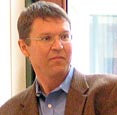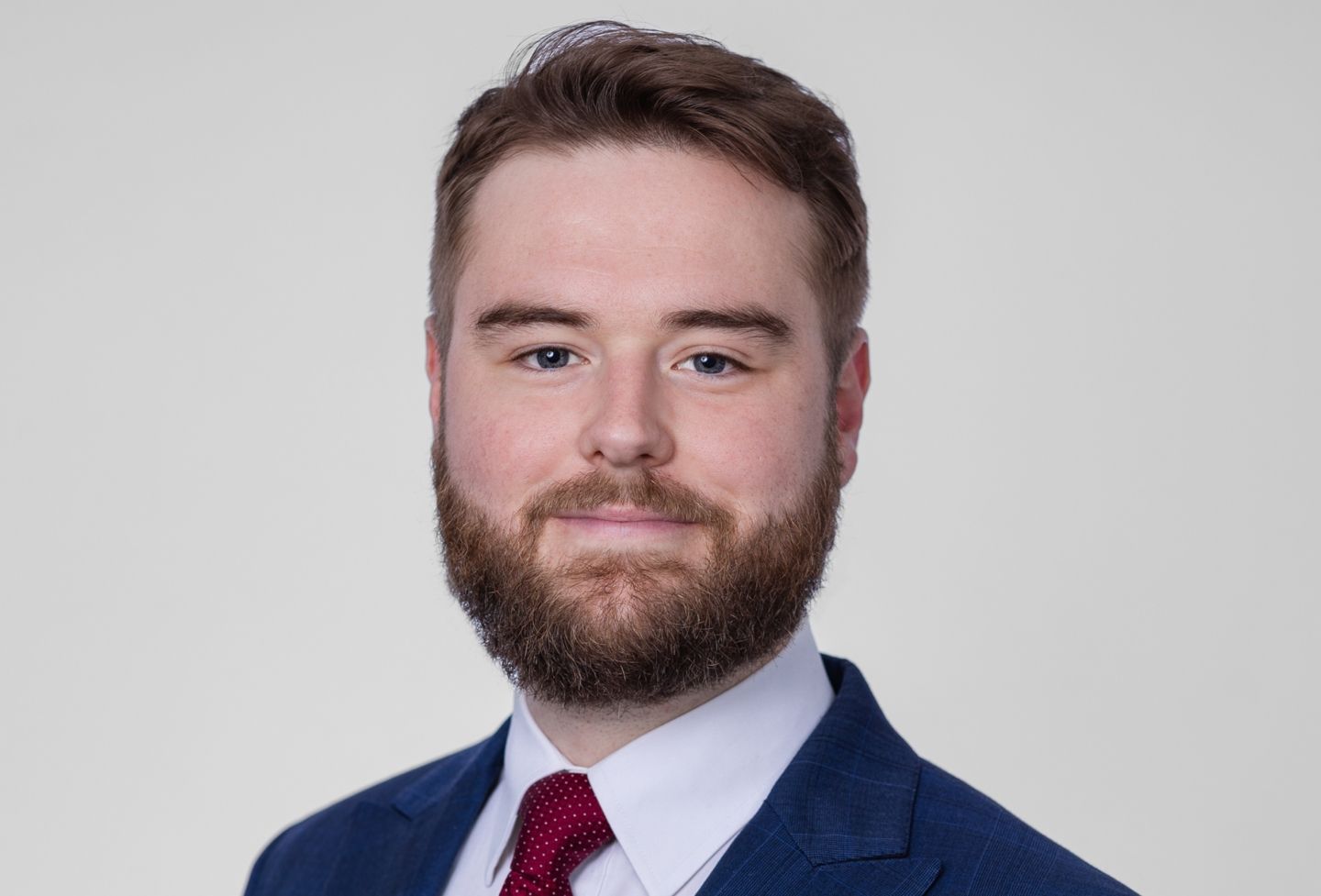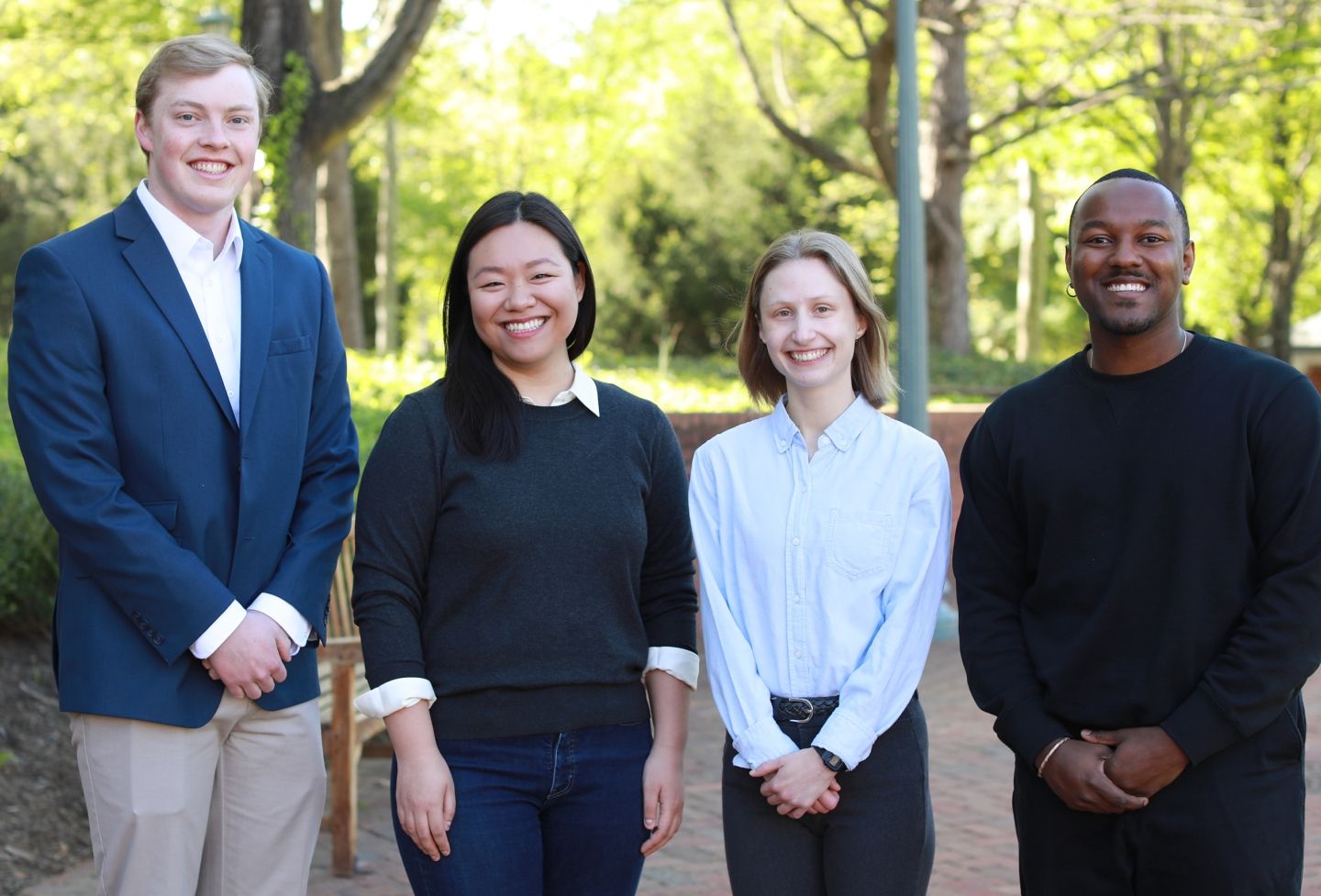Law Schools Could Face Age Discrimination Suits Over Faculty Hiring, Panelists Say

Hiring practices in America's law schools are vulnerable to an age discrimination lawsuit, according to Douglas Richmond and Ethan Burger, the co-authors of a forthcoming article on the issue in the Virginia Journal of Social Policy and the Law. Richmond, senior vice president for Aon Risk Services, a company that provides professional liability insurance for lawyers, and Burger, scholar-in-residence at American University's School of International Service, and an adjunct associate professor of law at the Washington College of Law, spoke in Caplin Pavilion Nov. 21 at the invitation of the Journal and the Law School's Employment and Labor Law Association. Law professor Rip Verkerke, also on the panel, offered a rebuttal.
The issue, Richmond summed up, is that "If you've practiced for longer than five years, you are regarded as an undesirable law school faculty candidate." In researching for their article, he said they "heard the same story over and over again" from practicing attorneys who were interested in law teaching and presumed their years of experience in practice was valuable for the classroom.
Not so, say Richmond and Burger, who pointed out that two or three years of experience is typical among the nation's law faculty members and that a more respected qualification is a judicial clerkship.
"Many law faculty do not have significant practical experience," Richmond said. Statistics complied for the article, drawn from data on law schools in Massachusetts, Ohio, and Texas, show that half of new faculty hires had less than five years of practice experience. In his rebuttal comments, Verkerke noted that this means the remaining half had spent at least five years in practice.
Richmond and Burger contend that law firms are doing less training than before, thus placing a greater burden on law schools to prepare students in practical matters, and that hiring older lawyers interested in retiring from successful careers to go into the classroom could address the need.
"There is a huge disconnect between what law firms expect and what the law schools are providing," Burger said. Legal education needs to get "more realistic," he said, and should offer more clinical courses and make greater use of seasoned adjunct faculty.
Richmond and Burger argue that the Supreme Court's 2005 ruling in Smith v. City of Jackson, specifically its finding that evidence of "disparate impact" can be introduced as a proxy for intent in age discrimination suits, means that hiring practices at many law schools are in violation of the federal Age Discrimination in Employment Act. The 1967 law treats workers over age 40 as a protected class. Smith v. City of Jackson was brought on by police officers in the Mississippi city who objected to a pay scale that gave a higher-percentage pay increase to younger employees.
"One of these suits is going to come," Burger predicted. "And many law schools are unprepared to defend such a suit."
Most recruitment of law faculty happens through hiring forums organized by the American Association of Law Schools, Burger explained. Some are lateral hires from other law schools, some are people famous in their fields, and the rest are aspiring young academics. Among the latter, the "model candidate" has a degree from a prestigious law school, did a judicial clerkship, and has two or three years of experience in the profession, he said. Other helpful qualifications are an advanced degree in another field, making the candidate interdisciplinary, and being from a historically under-represented minority group.
Burger speculated that among the reasons law schools may hire less experienced lawyers are: a smaller pool of candidates as incomes rise with age, making successful lawyers less interested in academic salaries; a "self-fulfilling prophecy" twist in which older lawyers believe law schools don't want them (when he was hired as an adjunct, Burger recounted, he was told, "Being adjunct is not a path to the faculty. Don't harbor any illusions"); what he called "geography" factors, meaning an unwillingness to dislocate a spouse's career or children's lives; and, finally, a perhaps greater willingness among young people to "risk going into academe."

Verkerke called the complaint that legal education is not realistic enough "a fairly well-plowed field.
"The value of practical instruction is undeniable," he said. "The question is how much weight to give it." He described the Law School's clinical offerings as "an incredibly valuable component of the curriculum."
But a university's highest purpose is to advance knowledge, he argued, and it is also "a dominant mission of law schools. Students come to U.Va. to learn from those developing new ideas about the law."
He challenged the article's data, saying the size of the pool of experienced lawyers attempting to find teaching posts is unknown. "It's unreasonable to conclude from these numbers that anything is amiss in law school hiring," he maintained.
As for the article's analysis of the Smith ruling, Verkerke pointed to what he called "a crucial omission": Justice John Paul Steven's opinion specifying that the version of the disparate impact standard set out in the Wards Cove Packing Company v. Antonio decision of 1989 applies to claims brought under Smith."It's difficult to overstate the importance of this aspect of the decision," he said, because it rejects informal statistical comparisons. Instead, a comparison has to be made between the qualified labor pool and those actually hired. Furthermore, a plaintiff has to identify the specific practice that produces the discrimination and provide statistical evidence of its impact. The Wards Cove standard also reduces the employer's burden of justification, he noted, "which makes claims very difficult to bring and much, much more difficult against law schools than against employers in other industries."
In the case of law school hiring, the issue of "small sample immunity" arises too. Typically, Virginia Law hires no more than four or five new faculty members a year, Verkerke said. Even if the data from several years were aggregated, it would be hard to show any statistical significance. "I predict that 'disparate impact' claims based on age will have no impact on law school hiring practices," he stated.
Drawing on his own experience on hiring committees, he said, "the first thing I look at is publications. Scholarship is really quite important. I can say that age never occurs to us."
Richmond countered that hiring data from the AALS would be adequate, although he admitted it might require a lawsuit to get it. "I do think this is an issue going forward."
Burger observed that many practicing lawyers with extensive publications to their credit are being overlooked in hiring and that some lawyers speculate that academic lawyers feel intimidated by those with professional success. "If you know what you're doing, you're a threat," he claimed.
Founded in 1819, the University of Virginia School of Law is the second-oldest continuously operating law school in the nation. Consistently ranked among the top law schools, Virginia is a world-renowned training ground for distinguished lawyers and public servants, instilling in them a commitment to leadership, integrity and community service.


